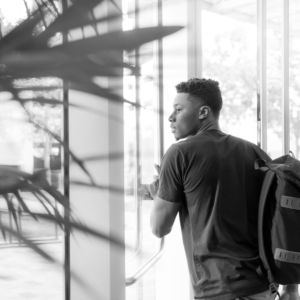Breaking Barriers to Postsecondary Education
According to the US Census Bureau, college graduates earn almost twice as much as those with only a high school diploma over the course of their lifetime, and are significantly more likely to be employed. This not only means that people are better able to support themselves and their families in the future, it also helps to strengthen the US economy by increasing tax returns and consumer spending power, and builds a more educated workforce that can compete on a global stage.
But the reality is that not everyone finds it easy to make the most out of opportunities in higher education. According to the US Department of Education, less than half of low-income high school seniors who intend to go to college end up enrolling, and just one in twelve graduate with a degree by age 24.
What can be done to help these students make better choices so that they reach their potential? ideas42 has been looking at this issue since 2012, and in May 2013 we published a white paper on using behavioral economics for postsecondary success. ideas42 is now building on this work by designing and testing a number of behavioral interventions that are aimed at improving outcomes in postsecondary education. We’ve published a new report outlining this work.
First, with support from the Bill and Melinda Gates Foundation and the Lumina Foundation, ideas42 launched and completed “Nudging for Success: Breaking Behavioral Barriers to Higher Education”.
From 2014 through early 2016, ideas42 and our sub-contractors designed and tested eight behaviorally-informed interventions related to the federal financial aid system with the aim of expanding access to higher education, encouraging successful completion of college studies, and supporting the repayment of student loans. The ultimate goal of this work is to generate insights that will inform the policy conversation around higher education reform.
We recently wrapped up several additional projects addressing post-secondary success. Thanks to funding from the Citi Foundation, ideas42 is partnering with the Youth Policy Institute in LA to encourage more low-income high-school students to apply to college, and with LaGuardia Community College in New York to reduce the number of aspiring students who accept a place at the college but fail to enroll (the ‘summer melt’ problem). In addition, the Michael and Susan Dell Foundation is supporting a project with San Francisco State University, allowing the team at ideas42 to design and test a behavioral approach to reducing the number of students who drop-out of college between the first and second year. All of these interventions will be designed with an eye to scalability – the ultimate goal is to identify interventions that can be adopted by institutions across the US.
Click here for a look at the results from our first 16 studies taking a ground-breaking look at applying behavioral science to the higher education experience.
Interested in learning more about our work applying behavioral science to the post-secondary education space? Reach out to us at education@ideas42.org or tweet at @ideas42 to join the conversation.
Partners











